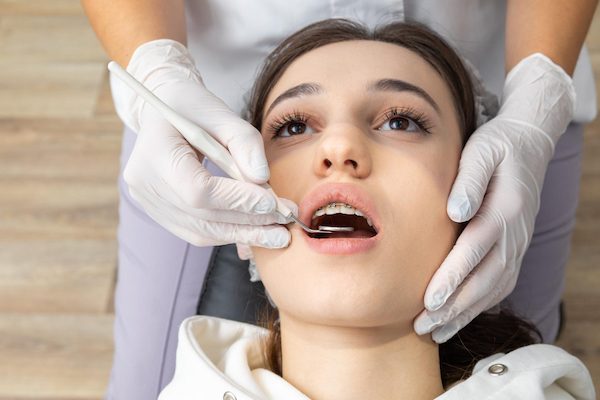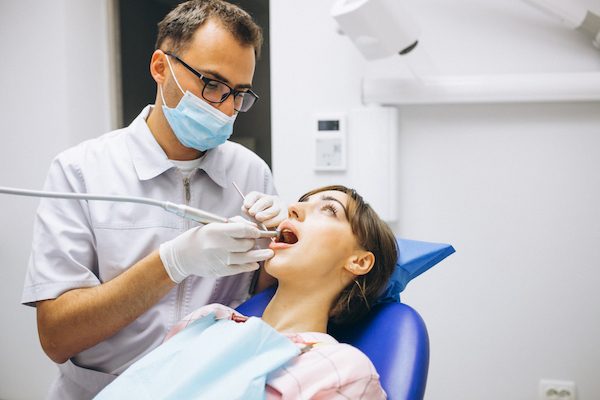Oral Surgery
What You Need to Know
Oral Surgery Campbelltown
Any surgical treatment on teeth, gums, jaws or other oral tissues is called oral surgery. This covers jaw procedures, implants, gum grafts, and extractions.
Oral and maxillofacial surgeons or periodontists are typically the ones that do oral surgery.
These are dental experts who have received specialised training in performing oral surgeries.

Common Types of Oral Surgery

The following procedures are some of the most popular for the jaw and teeth:
Impacted Wisdom Teeth
The final molars that erupt on each side of your upper and lower jaws are your wisdom teeth, often known as your “third molars.” One or more of these third molars frequently erupt improperly.
An impacted wisdom tooth is the third molar with an “impacted” between the jawbone and the gum tissue. Impeded wisdom teeth can cause swelling, pain, and infection.
Additionally, it may permanently harm surrounding teeth, gums, and bones. In some cases, impacted wisdom teeth can also result in the development of tumours or cysts that can displace large portions of the jaw. To prevent future issues, dentists advise surgically removing impacted wisdom teeth.
Dental Implants
Dental implants are the most long-term solution for tooth replacement.
Dental implant treatment involves the surgical implantation of a titanium or ceramic prosthetic tooth root or post into the jaw. The bone grows and joins directly to the implant over time.
Dental implants seem, feel, and operate exactly like natural teeth.
Tooth Extraction
In order to get ready for dentures or other prosthetic devices, it may be necessary to extract some of your teeth. Tooth extraction is the most typical oral surgery procedure (tooth removal). An extraction may be advised if you have severe tooth decay, gum disease (periodontitis), dental trauma, or issues with your wisdom teeth.
When possible, most dentists try to keep your natural teeth, but occasionally extractions are necessary to protect your general oral health. The removal of wisdom teeth is also frequently advised by dentists as a preventative strategy to lower your risk of developing cavities, losing bone density, and experiencing other issues.
Corrective Jaw Surgery
Orthognathic surgery, often known as corrective jaw surgery, treats skeletal issues with your jaw bones. This technique may alleviate facial imbalances, repair misalignments, or enhance chewing performance. Corrective jaw surgery is frequently used to relieve pain brought on by TMJ dysfunction (TMD).
How is Oral Surgery Performed Before, During, and After?
Before
To examine your teeth, gums, jaw joints, and supporting tissues, your healthcare expert will do a thorough examination. Additionally, they will take dental X-rays and scans to provide a clear look at your jawbone, nerves, and other critical oral landmarks. They will create a unique treatment strategy using this data.
During
Oral surgery may occasionally be carried out as an outpatient operation in a dental office. For comfort, your surgeon can recommend nitrous oxide, oral medicines, or mild or deep intravenous (IV) sedation. In other situations, general anaesthesia may be used to perform oral surgery in a hospital.
The type of oral surgery you’re having, the number of teeth being treated, and whether you opt for sedation affect how long your treatment lasts. Extraction of one tooth typically takes 30 minutes, whereas a more complicated procedure, such as corrective jaw surgery, usually takes two to three hours.
After
You’ll receive thorough post-operative instructions after your oral surgery operation. You must strictly adhere to these instructions to lower your risk of bleeding, infection, and other problems.
Oral Surgery at Marketfair Dental Care
Your trusted Campbelltown dentist handles the examination and management of various oral diseases that demand surgical intervention.
At Marketfair Dental Care, we treat all our patients as we would our families by using the most appropriate and cost-effective solutions.
Visit your Campbelltown dentist today!
Call us at (02) 4620 0800 or make an appointment online.
We are located at Marketfair Campbelltown Shop 21B, 4 Tindall St in Campbelltown.
FREQUENTLY ASKED QUESTIONS
Does oral surgery hurt?
Depending on the operation, you can experience pain, bleeding, or swelling afterwards. You might be given painkillers. After the process, the pain should gradually get better.
What activities are prohibited after oral surgery?
After treatment:
- Refrain from doing forceful head movements or heavy lifting for a few days.
- After treatment, do not rinse your mouth for 24 hours.
- For a few days after treatment, avoid brushing the surgical site, although you can gently wipe it down with soft gauze to keep it clean.
